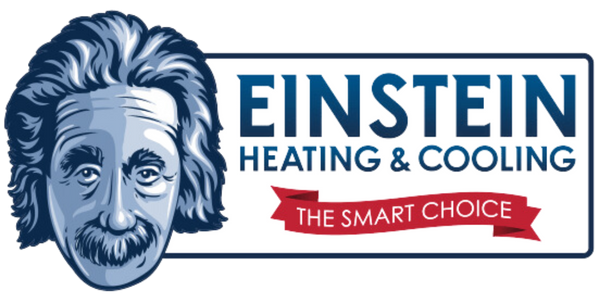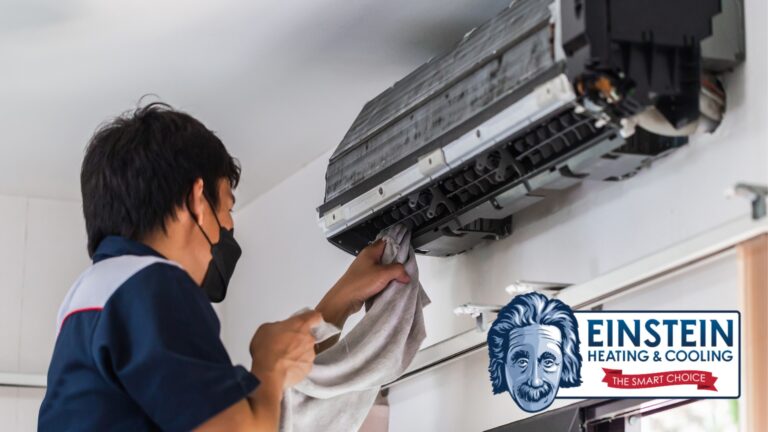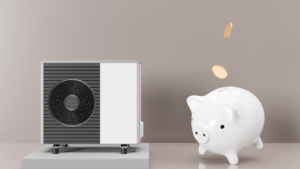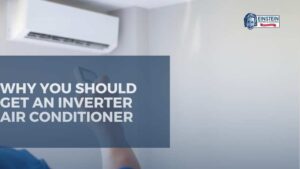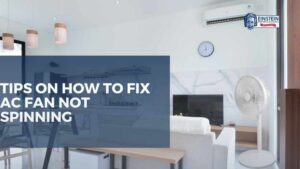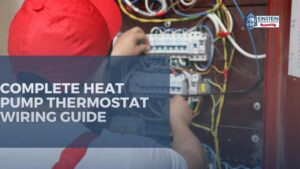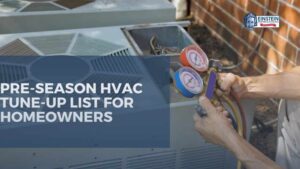Introduction
Phoenix, Arizona, is known for its scorching hot summers, making air conditioning an essential part of daily life. However, like any other appliance, air conditioners can encounter problems. In this blog, we will explore the top five common air conditioning problems in Phoenix and provide solutions to address them effectively.
Insufficient Cooling
Insufficient cooling is a common issue that can make your home uncomfortable, especially in the hot climate of Phoenix. There are a few potential causes for this problem, and addressing them promptly can restore the efficiency of your air conditioning system.
One of the first things to check when experiencing insufficient cooling is the air filters. Dirty or clogged filters can impede the airflow, making it difficult for the air conditioner to cool your home effectively. Over time, dust, debris, and dirt accumulate in the filters, reducing their ability to allow air to pass through freely. Regularly cleaning or replacing the air filters, ideally every one to three months, can significantly improve the cooling efficiency of your AC unit.
Another possible cause of insufficient cooling is a refrigerant leak. Refrigerant is responsible for absorbing heat from the air and cooling it down. If there is a leak in the refrigerant lines, the level of refrigerant can drop, leading to reduced cooling performance. It is crucial to contact a professional HVAC technician to diagnose and fix the leak, as handling refrigerant requires expertise and specialized equipment. Once the leak is repaired, the technician will recharge the system with the appropriate amount of refrigerant, restoring its cooling capacity.
In addition to these common causes, other factors such as faulty thermostats, malfunctioning fans, or blocked condenser units can also contribute to insufficient cooling. If the problem persists after checking the filters and addressing any refrigerant issues, it is advisable to seek professional assistance. An experienced technician can identify and resolve the underlying problem, ensuring that your air conditioning system operates efficiently, providing the desired level of cooling for your home in Phoenix.
Air Conditioning Unit Not Turning On
When your air conditioning unit refuses to turn on, it’s essential to go through a systematic troubleshooting process before seeking professional help. Here are some steps you can take to identify and potentially resolve the issue.
First, check the thermostat settings. Ensure that it is set to the “cool” mode and that the temperature setting is lower than the current room temperature. Sometimes, the AC unit fails to turn on simply because the thermostat is not properly configured. Adjusting the settings correctly may solve the problem.
If the thermostat settings are correct, move on to inspect the circuit breaker. A tripped circuit breaker can cut off the power supply to the air conditioning unit. Locate the circuit breaker panel in your home and check if the breaker that controls the AC unit is in the “off” position or somewhere in the middle. If so, turn it off completely and then back on. This reset may restore power to the AC unit, allowing it to turn on.
However, if the circuit breaker continues to trip repeatedly after being reset, it could indicate a more significant electrical issue. In such cases, it is advisable to contact a professional HVAC technician to investigate and resolve the problem safely. Electrical problems can be complex and potentially dangerous, so it’s best to leave them in the hands of qualified experts.
Remember, troubleshooting the thermostat settings and checking the circuit breaker are initial steps that homeowners can take to address the issue of an air conditioning unit not turning on. If these steps don’t resolve the problem, it’s time to seek professional assistance to diagnose and repair the underlying electrical or mechanical issues preventing the AC unit from functioning properly.
Uneven Cooling or Hot Spots
Experiencing uneven cooling or hot spots in your home can be frustrating, as it prevents you from enjoying consistent comfort throughout your living space. Fortunately, there are several steps you can take to address this issue and achieve balanced cooling.
One common cause of uneven cooling is obstructed airflow. Ensure that all vents and registers are free from any obstructions such as furniture, rugs, or curtains. These obstructions can disrupt the flow of air from your air conditioning system, leading to uneven cooling distribution. By keeping vents clear, you allow for unrestricted airflow, which helps in achieving balanced cooling throughout your home.
However, if the problem persists despite ensuring clear vents, the issue may lie within your ductwork. Leaky or poorly insulated ducts can contribute to inconsistent cooling. Over time, gaps or cracks can develop in the ductwork, causing cooled air to escape before reaching its intended destination. Inefficient insulation can also result in temperature loss along the ducts. To address these issues, it is advisable to hire a professional HVAC technician who can inspect your ductwork thoroughly.
A professional technician will identify any leaks or gaps in the ductwork and seal them properly. This helps to prevent cooled air from escaping and hot air from infiltrating the system, thereby improving the overall efficiency of your air conditioning system. Additionally, they may recommend adding or upgrading insulation to minimize temperature loss and ensure that the cooled air reaches all areas of your home effectively.
By addressing obstructed airflow and resolving ductwork issues, you can achieve more balanced cooling throughout your home, eliminating hot spots and ensuring consistent comfort. Consulting with a professional technician will help you diagnose and tackle the root cause of the problem, resulting in optimal cooling performance from your air conditioning system.
Strange Noises
When your air conditioning unit starts producing strange noises, it’s crucial not to ignore them, as they often indicate underlying issues. Various sounds, such as banging, clanking, hissing, or squealing, can signify problems within the system. Here are some potential causes and the actions you should take to address them.
Loose or damaged components can generate banging or clanking noises. Over time, vibrations or wear and tear can cause parts of the air conditioning unit to become loose or even break. If you notice such sounds, it is advisable to turn off the AC unit immediately and contact a professional technician. They have the expertise to inspect the system thoroughly, identify the source of the noise, and perform any necessary repairs. Ignoring loose or damaged components can lead to further damage and potentially more expensive repairs down the line.
Worn-out belts can produce a squealing noise. Over time, the belts that operate various components of the air conditioning unit can wear out or become misaligned, causing friction and generating a squealing sound. A professional technician can examine the belts and replace them if necessary, ensuring smooth and quiet operation of the unit.
Problems with the fan motor can also result in strange noises. If the fan motor is malfunctioning or experiencing issues, it may produce unusual sounds such as grinding or screeching. In such cases, contacting a professional technician to inspect and repair the fan motor is best. They have the expertise and knowledge to diagnose the problem accurately and take the appropriate measures to resolve it.
In any case, when you hear strange noises coming from your air conditioning unit, it is essential to turn off the system and seek the assistance of a professional technician. They will not only identify the source of the noise but also perform any necessary repairs or part replacements, ensuring that your air conditioning system operates quietly and efficiently, providing the cooling comfort you need.
Poor Air Quality
Maintaining good indoor air quality is vital, especially in a desert climate like Phoenix. If you notice excessive dust, allergens, or unpleasant odors circulating in your home, your air conditioning system may be a contributing factor. Here are some common causes of poor air quality and steps to address them:
Dirty air filters are a common culprit. Over time, air filters accumulate dust, pollen, and other airborne particles, reducing their effectiveness in capturing pollutants. Regularly clean or replace your air filters to prevent the buildup of dust and allergens. Check the manufacturer’s guidelines for recommended maintenance intervals, but typically it is advisable to clean or replace filters every one to three months.
Mold growth in the evaporator coils can also impact air quality. Moisture and organic material can create an environment conducive to mold growth within the air conditioning system. If you suspect mold, it is essential to have a professional HVAC technician inspect and clean the evaporator coils. They can remove the mold and sanitize the coils to prevent further growth, improving both air quality and system performance.
Consider installing an air purifier or UV germicidal lights. Air purifiers can help capture and filter out airborne particles, including dust, pollen, and pet dander. UV germicidal lights can kill bacteria, viruses, and mold spores in the air, minimizing their presence and improving overall air quality. Consult with an HVAC professional to determine the best options for your home and have them properly installed.
In addition to these steps, maintaining proper ventilation in your home is crucial. Open windows when weather permits to allow fresh air to circulate and help flush out indoor pollutants. Regularly cleaning and dusting surfaces, vacuuming carpets, and keeping humidity levels in check can also contribute to better indoor air quality.
By addressing these common causes and implementing these solutions, you can significantly improve the air quality in your home. Breathing clean, fresh air is essential for your health and well-being, and a well-maintained air conditioning system is crucial in achieving that goal.
Conclusion
Living in Phoenix requires a reliable and efficient air conditioning system to combat the scorching heat. By understanding and addressing the common problems discussed above, you can keep your AC unit in optimal condition and enjoy cool and comfortable indoor environments throughout the hot summer months. Remember, when encountering complex issues, it is always best to seek professional assistance from qualified HVAC technicians to ensure safe and effective repairs.
